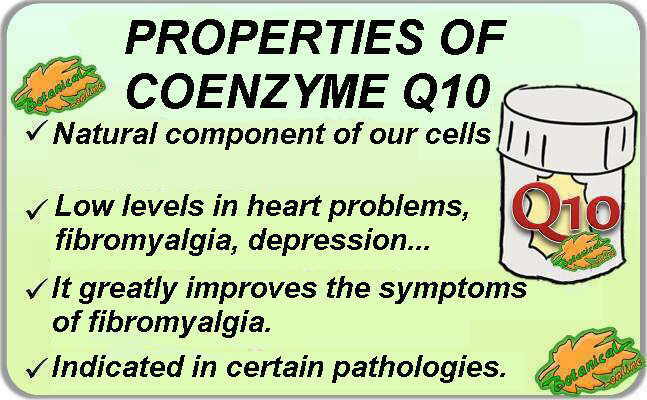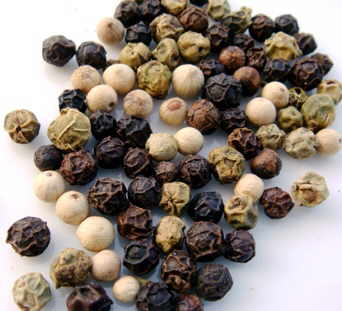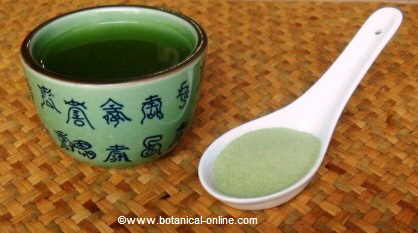Uses and benefits of coenzyme Q10
What is coenzyme Q10?
Coenzyme Q 10 is a compound with a structure similar to vitamin E and vitamin K.
It is found naturally in the mitochondria of body cells, especially those of the heart, kidneys, liver and pancreas.
Mitochondria are the parts of the cell responsible for the production of energy.
Characteristics of coenzyme Q10

Coenzyme Q10 is a component present in our cells (in organelles called mitochondria)
Coenzyme Q10 is also known as “ubiquinone”, a word derived from “ubiquitous” (= “everywhere”) and quinone, a very important aromatic compound from a biological point of view.
It is a pseudovitamin, such as taurine or lipoic acid. It means that it is vital for the organism, although it does not need to be supplemented, because normally the body is capable of producing it.
At present, coenzyme Q10 is a nutritional supplement widely used in Canada, Japan, the United States, Russia and Europe. The products that are on sale in herbalists, pharmacies and health stores are obtained by fermentation with special yeasts from sugar cane and sugar beet.
The country with the highest manufacturing is Japan, where consumption is also the highest, since it is assumed that 10% of the population usually takes this supplement.
Functions of coenzyme Q10

Medicinal properties of Coenzyme Q10 supplements and their potential benefits. It is recommended mainly for fibromyalgia
The main functions of coenzyme Q10 are the following:
- Provide energy: It is the main function of coenzyme Q10. It acts as a catalyst along with the enzymes (that is why it is a coenzyme) to carry out the necessary metabolic processes that convert food into energy.
- Act as an antioxidant: Its function as an antioxidant is mainly due to its ability to protect the cell walls, preventing oxidation. On the other hand, it is believed to protect vitamin E, a very powerful antioxidant, capable of neutralizing the effects that free radicals exert on the body’s cells. In this sense, some specialists consider it as a “good antidote” against aging.
- Keep the defenses in good condition: Coenzyme Q10 protects and stimulates the immune system so that the body is more resistant against certain diseases that weaken their defenses, such as AIDS or cancer.
- Participate in numerous chemical reactions of the organism: In this way it is necessary for the organism to function properly. The deficit of coenzyme Q10 has been related to the appearance of numerous anomalies such as hypertension, Parkinson’s disease, body pain, multiple sclerosis, congestive heart failure, muscular dystrophy, gingivitis, etc.
Diseases due to lack of coenzyme Q10
It has been observed that some diseases have or are associated with low cellular levels of coenzyme Q10 (COQ10), such as people affected by Prader-Willi syndrome (genetic disease), male infertility, Peyronie’s disease, migraine and Parkinson’s. .
There is also a deficiency of COQ10 in fibromyalgia, people with heart attacks and depression.
Medications that lower Coenzyme Q10 levels
The drugs used to treat cholesterol problems, called statins, cause the depletion of the body’s Q10 coenzyme levels.
When to take Coenzyme Q10 supplements?
Under normal conditions, people should have enough coenzyme Q10 with a balanced diet. However, as people age, the reserves of this component decrease so that additional supplementation may be necessary to avoid deficiencies. Some specialists recommend taking supplements of this coenzyme when a person exceeds 40 years. Other factors that could cause low levels of this coenzyme are:
- Certain diseases: For example, this supplement is very advisable in case of cardiovascular diseases and fibromyalgia. It is also studying its role in diseases that occur with insulin resistance, due to its role in the regulation of glycaemia and cholesterol: polycystic ovaries,
- Deficiencies of vitamins or minerals: In order for the body to produce coenzyme Q10, it is necessary to have an adequate level of B vitamins, vitamin C, vitamin E and selenium.
- Certain medications, such as those used to lower cholesterol. This supplement is usually given together with statins, since these drugs seem to inhibit the formation of coenzyme Q10 and lower its levels. However, it has also been seen that coenzyme Q10 can improve blood sugar levels and decrease cholesterol
- Smoking: Tobacco depletes reserves of coenzyme Q10 (Quit smoking)
How to obtain coenzyme Q10?
- Animal sources of coenzyme Q10: The natural sources of coenzyme Q10 mainly include foods of animal origin (oily fish, liver and meat in general)
- Vegetable sources of coenzyme Q10: Foods rich in healthy fats contain this coenzyme.
- Supplements: They can be obtained in the form of capsules, tablets, gels. All of them are usually accompanied by vitamin E as a stabilizer and a base of fat that favors its absorption. It is taken during meals.
How do Coenzyme Q10 supplements work?
When Coenzyme Q10 supplements are taken, the improvement occurs after a time of its application. Therefore, positive reactions should not be expected during the first applications. It must be constant in its use so that the first symptoms of improvement are manifested.
Generally, the first positive effects are obtained from a couple of months of treatment, although there are people who must undergo half-year treatments to obtain maximum effectiveness.
![]() More information on Coenzyme Q10 .
More information on Coenzyme Q10 .








